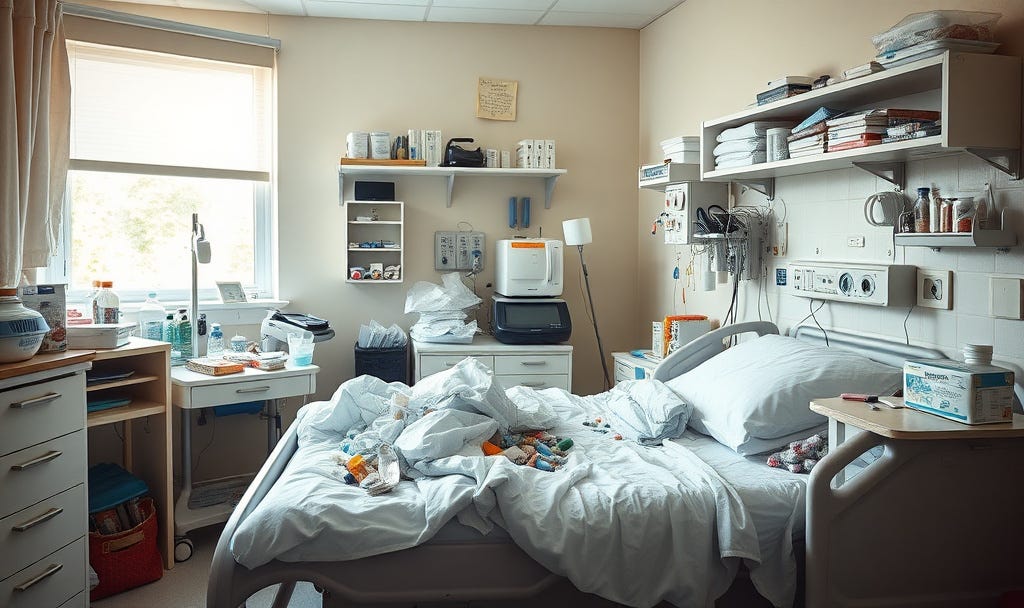When Hell Meets Hope: Navigating Addiction, Suicidal Ideation, and the Power of Recovery
I'll never forget the day I hit rock bottom. I was alone in my apartment, surrounded by the remnants of my addiction – empty bottles, crumpled up foil, the stench of my own despair. I stared at the pills in my hand, my mind echoing with a haunting question: "Is this the only way out?"
But the scariest part wasn't that moment. It was the moment I got behind the wheel of my car, fueled by a bottle of Xanax, a bottle of rum, and a desire to escape the hell that had become my life.
I had just left my ex's parents' house, fleeing a relationship that was toxic, abusive, and suffocating. The drugs and alcohol had stopped working, had stopped numbing the pain. And in that moment, I felt like I had nothing left. Like I was no one, like I wasn't good enough.
I got in my car, pills and booze in hand, a rifle laid across the passenger seat. I was too afraid to shoot myself, but I knew I had to escape. So I started driving, the road a blur as tears streamed down my face. And then, I turned the wheel as hard as I could, feeling the car skid, the tires screech, the world spin.
I don't remember the crash. I don't remember the days that followed. I woke up in a hospital bed, attached to machines, my mind foggy. But as the haze cleared, I realized I had survived. I had tried to leave, but life had other plans.
It was a wake-up call, folks. A brutal, terrifying wake-up call. And it was the push I needed to reach out, to seek help, to start the long, hard journey of recovery.
My journey wasn't easy. There were tears, tantrums, and more than a few relapses. But with time, patience, and a hell of a lot of support, I found my way.
Therapy became my lifeline. I learned to identify my triggers, develop healthy coping mechanisms, and challenge those damn lies my mind kept telling me. I discovered the power of mindfulness, of staying present and focused on the here and now, rather than getting lost in fears of the future or regrets of the past.
Support groups gave me a sense of community, of belonging. I was no longer alone in my struggles. I could lean on others who got it, who had walked a similar path. And I could offer my own support in return, which was incredibly empowering.
Finding my tribe wasn't easy. It never is. As humans, we're wired for connection, for community. We come from tribes, from groups of people banding together for survival. And recovery is no different. It takes a village, folks. It takes people who understand, who get it, who can offer a hand up when we're struggling to stand.
It took time, and it took effort. It took stepping out of my comfort zone, attending those first few meetings, reaching out to strangers who would become friends. But oh, was it worth it. Because now, I have a tribe of warriors, of fighters, of people who see me, who hear me, who cheer me on every step of the way.
Self-care became non-negotiable. That meant getting enough sleep, eating nutritious food. It meant doing things that brought me joy, whether that was reading a good book, taking a long bath, or simply enjoying a cup of coffee in the morning. It meant being kind to myself, even when that felt incredibly hard.
And when the inevitable challenges arose, I had a plan. I knew how to reach out to my support network, how to use my coping skills, how to get back on track.
Recovery isn't a straight line. It's a journey, with ups and downs. But it's a journey worth taking.
If you're struggling with addiction and suicidal thoughts, please know this: you are not alone. You are not a burden. And you are most definitely worth it.
Reach out to a trusted friend, family member, or mental health professional. Call a helpline like the National Suicide Prevention Lifeline (1-800-273-TALK). Get connected with a support group, either in-person or online.
And for God's sake, be kind to yourself. You're doing the best you can, and that's something to be proud of. Celebrate your wins, no matter how small they may seem. And when the darkness comes, as it sometimes will, hold onto hope. Better days are ahead.
I still have tough days, days when those old thoughts try to creep back in. But the difference now is, I have tools. I have support. And I have a deep, unshakeable belief that I am enough. Just as I am.
Recovery is possible. Healing is possible. And you, my friend, are worthy of a life of purpose, joy, and freedom.
So, let's raise our heads high, our voices loud. Let's celebrate the fighters, the warriors, the ones who refuse to give up. And to those still in the midst of the battle, I see you. I hear you. And I'm here, cheering you on every step of the way.-Belle-
Resources:
- National Suicide Prevention Lifeline: 1-800-273-TALK
- Substance Abuse and Mental Health Services Administration (SAMHSA) Helpline: 1-800-662-HELP (4357)
- National Institute on Drug Abuse: www.drugabuse.gov
- The Recovery Village: www.therecoveryvillage.com
- Mindful.org: www.mindful.org
Note: If you're in immediate danger, please call 911 or your local emergency number. Help is available. You are not alone.






No comments:
Post a Comment